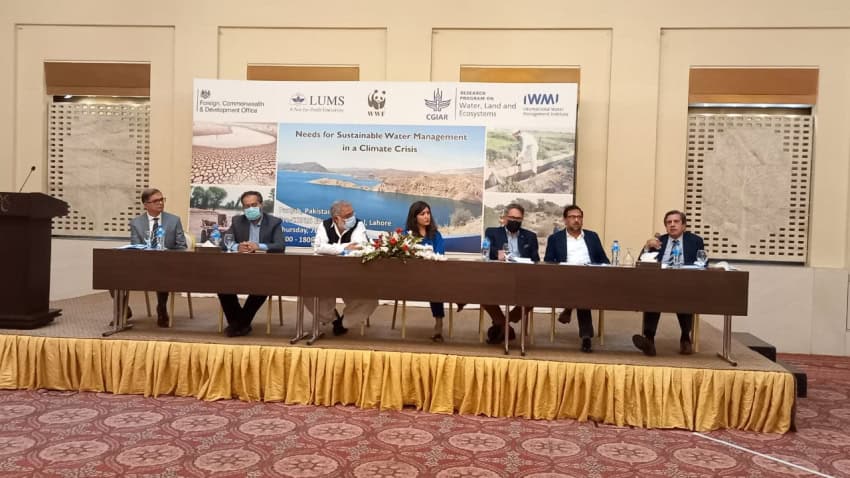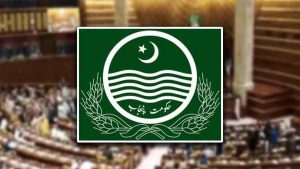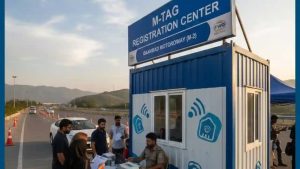LAHORE – Reliable data and its efficient use are vital in finding solutions for water scarcity in the fifth most climate-vulnerable country in the world, conference participants said on Thursday.
The moot, titled “Needs for Sustainable Water Management in a Climate Crisis”, was organized by the International Water Management Institute (IWMI) in connection with the COP26 being held in the UK next month. It was attended by parliamentarians, water experts, and government officials.
“Water is a basic human right,” said Punjab Minister for Irrigation Muhammad Mohsin Khan Leghari, warning that the growing population, technological invasion, and high demand for water have led to a water shortage that is endangering millions of people in Pakistan.
“We have been opposing the installation of solar tube wells in Punjab. The new solar tube wells will be registered to maintain a balance between recharge and extraction, in order to prevent further depletion of groundwater levels,” the minister informed.
Leghari suggested that there must be water pricing and discouragement towards the installation of solar tube wells because they are promoting indiscriminate pumping of groundwater.
“Punjab will sanction solar tube wells based on available groundwater data as solar pumps have already depleted groundwater in Quetta,” he added.
Joining the discussion via a virtual link from Italy, Rachael McDonnell, IWMI’s Deputy Director-General – Research for Development, lauded the climate activist Greta Thunberg for her activism regarding climate change.
Ms. McDonnell discussed the changes that have developed over a period of decades in the water cycle, a visible manifestation of which is increased precipitation in Punjab, the country’s most populous province.
In her keynote address, she highlighted that IWMI was working with US space agency NASA to fight climate change and to make water usage sustainable. Apart from the public sector, she continued, efforts are needed to put a stop to the growing climate crisis.
The water expert then outlined some of the initiatives like Index-Based Flood Insurance, which is at play since 2017 to secure the farmers. She welcomed IWMI’s partnership with Pakistan on climate adaptation priorities and insisted that effective use of data coupled with timeliness can help fight climate change, droughts & floods.
Mohsin Hafeez, IWMI’s Country Representative for Pakistan & Central Asia, stressed the need for robust measures on the individual and national levels to fight water scarcity amid global warming. He was of the view that since Pakistan is vulnerable to global warming speedy measures are needed to thwart the impending crisis.
Climate Governance Advisor Punjab, Sana Zia, noted that data on water resources is very important and must be used in decision making.
“We are moving to climate-resilient water management, yet there is a need for better groundwater regulation that will help us to value groundwater as a resource,” she shared.
Punjab’s irrigation secretary Saif Anjum, speaking to the conference, said that the conservation and management of water should be an unavoidable part of everyone’s life, as water resources’ depletion is becoming a greater threat than it was before.
“Climate change will affect our glaciers and our vulnerability will further increase,” the secretary said, highlighting the importance of ensuring more crop per drop output to maintain and increase productivity even in the wake of reducing water availability.
“We have a century-old irrigation system which needs to be changed,” he stressed.
Closing the event, Abid Bodla, Member Punjab Climate, and Environment Planning Commission feared that the situation relating to water scarcity would aggravate due to poor management of the water sector and contribution to insanitation, inadequate water supply, and environmental degradation.
“Due to lack of implementation of policies and inefficient management, Pakistan could face water shortage by 2030. Punjab Water Act allows us to promote water management,” he concluded.
Director WWF-Pakistan Hamad Naqi Khan and LUMS Prof. Muhammad Abubakar also spoke on the occasion.














